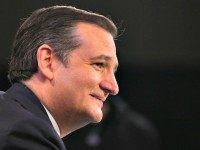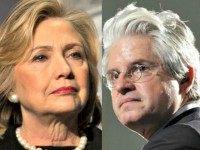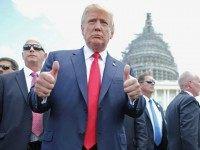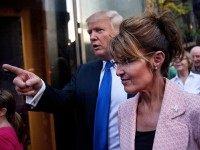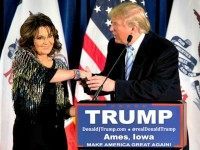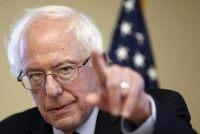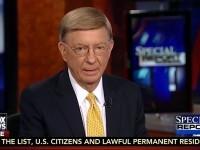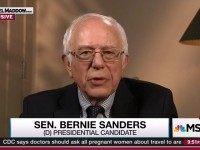Citizens Dedicated To Preserving Our Constitutional Republic
REPUBLICAN LEADERS ...RNC AND FOX NEWS ARE PLANNING A BROKERED OR CONTESTED CONVENTION ELECTION 2016NEWS AND UPDATES...etc etc
The RNC is preparing a brokered convention...to not allow Marco Rubio to win...They will bring in an establishment candidate to give it to that candidate...What can be done about that..We know it will be Jeb or Rubio..They can do this because of the ways that they have structured the riles...this is incredible.. the pick at a brokered convention never wins..they said FDR was the last to ever win a brokered convention.What they are really doing is saying they had rather elect Hillary than have Trump win............I AM TOO DISGUSTED FOR WORDS
UPDATE:
Cleveland Cliffhanger? Prospects of a Deadlocked GOP Convention
The big winner in Iowa’s Republican caucuses on Monday night might not have been Ted Cruz. It may have been a nominating process that fails to yield a clear winner. A clear winner being a candidate who goes to Cleveland this summer with the presidential nomination in hand.
At the end of Monday night, which count really mattered? Delegates acquired. As of this writing, Cruz has bagged eight delegates, Trump and Rubio, seven each, with four other delegates going to also-rans.
Raw vote totals are what most folk tend to watch and weigh. But in 2016, it pays to more closely follow the candidates’ delegate totals. Thanks to the Republican National Committee (RNC), caucuses and primaries held prior to mid-March mandate proportional distribution of delegates based on candidates’ vote totals in given contests. Most early caucuses and primaries impose threshold minimums to win delegates (say, Alabama, with a 20% threshold).
Prior to Mid-March, 25 States, along with DC, Guam, and Puerto Rico, will hold proportional contests. That accounts for 1,022 bound delegates (“bound” being delegates committed to a candidate for the first vote). 45% of the bound delegates will be picked proportionally or in “hybrid” formats, which include triggering provisions for larger delegate yields for candidates who meet higher vote percentage thresholds. There are WTA (winner-take-all) thresholds, but those will be quite difficult to achieve.
Starting with Super Tuesday, March 15, most of the remaining states have opted to hold winner-take-all contests, though a handful will continue to make proportional distributions. From mid-March forward, 1,238 bound delegates will be chosen (Colorado’s delegates declare at convention).
The number of delegates needed to secure the GOP nomination is 1,237. There are a number of unbound (3 per state) and unpledged delegates. The unpledged delegates are mostly establishment picks who would factor in at a deadlocked convention.
Short of a breakout by one the major contenders (Trump, Cruz, and Rubio), it’s not hard to imagine a scenario where the proportional phase of the nominating process yields tightly packed delegate counts among the three. Complicating matters is if new life is breathed into the Carson, Kasich, or Christe campaigns (as improbable as that appears).
But, say you, won’t the nomination fight be resolved with Super Tuesday and the subsequent contests?
That could happen, but consider this prospect. Cruz, Rubio, and Trump take roughly a third each of the delegates in the proportional phase. For illustration, say, 340 delegates per man. That means in the winner-take-all phase, one of the principals would need to capture 897 of the available 1,238 bound delegates to win. That’s about 73% of the total or three out of every four delegates. Possible, but how likely? This assumes, too, that the principals are competitive with one another, affording each the chance to pick off states.
Cruz, Trump, and Rubio have the resources to stay the course. Trump is self-funding. Cruz’s fundraising operation is already solid and benefits all the more from his Iowa win. Rubio’s stronger than anticipated finish in Iowa boosts his fundraising. And as Rubio consolidates establishment voters -- as he began doing in Iowa -- and lesser establishment candidates drop out, expect a significant upswing in his campaign’s financial fortunes.
Writes Michael Snyder at “Before It’s News”:
[I]f no candidate is able to secure enough delegates, that means that we would end up with a “brokered convention”. The mechanics of a brokered convention can get quite complicated, but on a practical level what that would essentially mean is that the party establishment would get to hand select the nominee. And in case you are wondering, that would not be Donald Trump or Ted Cruz.
Snyder’s assessment is flawed in a couple of respects (though not his conclusion about the candidates).
“Deadlocked” versus a “brokered” convention, the more accurate designation is “deadlocked.” A brokered convention suggests that party bosses call the shots nearly exclusively. The party boss era in American politics is long past.
Though unpledged delegates -- who are likely establishment recruits -- will play a critical role at a deadlocked convention, it’s important to remember that bound delegates are only committed to their candidates on the first ballot.
Thereafter, they’re unbound. Candidates’ and, perhaps, dark horses’ (yes, a draft is possible) primary focus for vote gathering will be among all those plentiful unbound state delegates. If the convention deadlocks, it’s going to be the Wild West, with plenty of wheeling and dealing, barroom brawls, shoot-outs, shenanigans, and backroom deals. But all that will occur across delegations and not just among the establishment few.
Snyder’s guess that the nominee won’t be named “Cruz” or “Trump” should a deadlock occur is reasonable. Deadlocked conventions -- if past brokered conventions are any guide -- tend to nominee candidates who at least appear more centrist or moderate. At a deadlocked 2016 Cleveland affair, the buzz word may be “electable.” Right now, Marco Rubio seems to fit the bill. As Snyder pointed out in his article, that’s not an endorsement; it’s merely an observation.
If the Republican field narrows to two principal candidates, then the chances for a deadlocked convention melt away. But if, as anticipated, Cruz, Trump, and Rubio (and possibly one or two others) remain in the race, then a deadlocked convention moves from “maybe” to “probable” with each passing primary, caucus, and state convention. The Republican presidential nominee who emerges will have done so after the fight of his political life – and ours.
The big winner in Iowa’s Republican caucuses on Monday night might not have been Ted Cruz. It may have been a nominating process that fails to yield a clear winner. A clear winner being a candidate who goes to Cleveland this summer with the presidential nomination in hand.
At the end of Monday night, which count really mattered? Delegates acquired. As of this writing, Cruz has bagged eight delegates, Trump and Rubio, seven each, with four other delegates going to also-rans.
Raw vote totals are what most folk tend to watch and weigh. But in 2016, it pays to more closely follow the candidates’ delegate totals. Thanks to the Republican National Committee (RNC), caucuses and primaries held prior to mid-March mandate proportional distribution of delegates based on candidates’ vote totals in given contests. Most early caucuses and primaries impose threshold minimums to win delegates (say, Alabama, with a 20% threshold).
Prior to Mid-March, 25 States, along with DC, Guam, and Puerto Rico, will hold proportional contests. That accounts for 1,022 bound delegates (“bound” being delegates committed to a candidate for the first vote). 45% of the bound delegates will be picked proportionally or in “hybrid” formats, which include triggering provisions for larger delegate yields for candidates who meet higher vote percentage thresholds. There are WTA (winner-take-all) thresholds, but those will be quite difficult to achieve.
Starting with Super Tuesday, March 15, most of the remaining states have opted to hold winner-take-all contests, though a handful will continue to make proportional distributions. From mid-March forward, 1,238 bound delegates will be chosen (Colorado’s delegates declare at convention).
The number of delegates needed to secure the GOP nomination is 1,237. There are a number of unbound (3 per state) and unpledged delegates. The unpledged delegates are mostly establishment picks who would factor in at a deadlocked convention.
Short of a breakout by one the major contenders (Trump, Cruz, and Rubio), it’s not hard to imagine a scenario where the proportional phase of the nominating process yields tightly packed delegate counts among the three. Complicating matters is if new life is breathed into the Carson, Kasich, or Christe campaigns (as improbable as that appears).
But, say you, won’t the nomination fight be resolved with Super Tuesday and the subsequent contests?
That could happen, but consider this prospect. Cruz, Rubio, and Trump take roughly a third each of the delegates in the proportional phase. For illustration, say, 340 delegates per man. That means in the winner-take-all phase, one of the principals would need to capture 897 of the available 1,238 bound delegates to win. That’s about 73% of the total or three out of every four delegates. Possible, but how likely? This assumes, too, that the principals are competitive with one another, affording each the chance to pick off states.
Cruz, Trump, and Rubio have the resources to stay the course. Trump is self-funding. Cruz’s fundraising operation is already solid and benefits all the more from his Iowa win. Rubio’s stronger than anticipated finish in Iowa boosts his fundraising. And as Rubio consolidates establishment voters -- as he began doing in Iowa -- and lesser establishment candidates drop out, expect a significant upswing in his campaign’s financial fortunes.
Writes Michael Snyder at “Before It’s News”:
[I]f no candidate is able to secure enough delegates, that means that we would end up with a “brokered convention”. The mechanics of a brokered convention can get quite complicated, but on a practical level what that would essentially mean is that the party establishment would get to hand select the nominee. And in case you are wondering, that would not be Donald Trump or Ted Cruz.
Snyder’s assessment is flawed in a couple of respects (though not his conclusion about the candidates).
“Deadlocked” versus a “brokered” convention, the more accurate designation is “deadlocked.” A brokered convention suggests that party bosses call the shots nearly exclusively. The party boss era in American politics is long past.
Though unpledged delegates -- who are likely establishment recruits -- will play a critical role at a deadlocked convention, it’s important to remember that bound delegates are only committed to their candidates on the first ballot.
Thereafter, they’re unbound. Candidates’ and, perhaps, dark horses’ (yes, a draft is possible) primary focus for vote gathering will be among all those plentiful unbound state delegates. If the convention deadlocks, it’s going to be the Wild West, with plenty of wheeling and dealing, barroom brawls, shoot-outs, shenanigans, and backroom deals. But all that will occur across delegations and not just among the establishment few.
Snyder’s guess that the nominee won’t be named “Cruz” or “Trump” should a deadlock occur is reasonable. Deadlocked conventions -- if past brokered conventions are any guide -- tend to nominee candidates who at least appear more centrist or moderate. At a deadlocked 2016 Cleveland affair, the buzz word may be “electable.” Right now, Marco Rubio seems to fit the bill. As Snyder pointed out in his article, that’s not an endorsement; it’s merely an observation.
If the Republican field narrows to two principal candidates, then the chances for a deadlocked convention melt away. But if, as anticipated, Cruz, Trump, and Rubio (and possibly one or two others) remain in the race, then a deadlocked convention moves from “maybe” to “probable” with each passing primary, caucus, and state convention. The Republican presidential nominee who emerges will have done so after the fight of his political life – and ours.
Read more: http://www.americanthinker.com/articles/2016/02/cleveland_cliffhang...
Follow us: @AmericanThinker on Twitter | AmericanThinker on Facebook
Replies to This Discussion
-
Donald Trump was on Fox and Friends this morning siding with the GOP establishment, suggesting that everybody in Washington hates Ted Cruz and that he is very unpopular...
-
you take that same group of republicans without the presence of Cruz there you would get completely different answers. Most people do not like to be confrontational with people they don't personally know or do not hate. Meanless exercise.
-
Denninger weighs in on TC.
http://market-ticker.org/akcs-www?post=231043
I am seeing much more support of Trump among libertarians which have almost discounted the ENTIRE political class as damaged goods and I am one of them.
Could be they see Trump as big FU vote with the bonus of actually salvaging something out of this.
-
Here is a view of this situation , by a good Black conservative Brother. Proud to have him as a conservative Patriot......
-
Cruz says thar the Militia is wrong. And needs to leave. ..That figures to me.
-
Rand Paul: Donald Trump Is a ‘Fake Conservative’
Rand Paul says Donald Trump is a “fake conservative,” though he won’t say the same about Trump’s newest backer Sarah Palin.
-
Trump: ‘I Assumed’ Clinton Foundation Donations Were ‘Put To Good U...
Republican presidential candidate Donald Trump said that as a businessman “I’d give to everybody” when he gave to the Clinton Foundation “I assumed it was being put to good use” and that the Clintons “never really did anything for me”
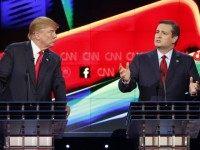
Trump vs. Cruz: Wrecking the Establishment vs. Standing with Conser...
The battle between Senator Ted Cruz (R-TX) and Donald Trump has now divided insurgent Republicans into two camps: those who prize conservative values over all else, and those who prize slapping the establishment over all else. That, in essence, is the dividing line between the two candidates.
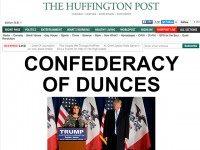
HuffPo on Trump/Palin: ‘Confederacy of Dunces’
Paige Lavender writes in the Huffington Post of former Alaska governor Sarah Palin’s endorsement of GOP presidential frontrunner Donald Trump in an article linked on their homepage under the headline “Confederacy of Dunces.”

EXCLUSIVE– Rand Paul: Ted Cruz Is ‘Not Authentic’
Republican presidential candidate Sen. Rand Paul went after rival Sen. Ted Cruz (R-TX) by questioning his conservative authenticity.

Cruz and Beck Join Forces at Waterloo to Campaign
Glenn Beck lit into former Alaska governor Sarah Palin after her endorsement today of GOP presidential frontrunner Donald Trump. The radio host then announced that he would be joining Sen. Ted Cruz this weekend for a campaign rally in Waterloo, Iowa.
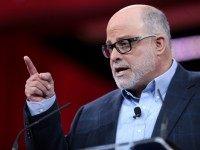
Levin: Drudge and Breitbart ‘Have Put Their Finger on the Scales’ F...
Talk radio host Mark Levin said that the Drudge Report and Breitbart “have put their finger on the scales, I believe, for Trump” on Tuesday. Levin began by stating that “30 days ago, [GOP presidential candidate Sen.] Ted Cruz (R-TX)
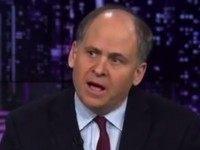
Alter: If Trump Wins ‘Religious’ Iowa, He Will Have a ‘Real Head of...
Tuesday on Bloomberg’s “With All Due Respect” broadcasted on MSNBC, network regular Jonathan Alter, author of “The Center Holds,” said if Republican presidential candidate Donald Trump, wins Iowa, which he described as a very religious state, his campaign will indeed have a

Krauthammer: Intel On Hillary’s Server ‘Worse Than What Snowden Did...
Columnist Charles Krauthammer stated the fact that Democratic presidential candidate former Secretary of State Hillary Clinton’s emails contained SAP information is “worse than what Snowden did” according to some he’s talked to, and Hillary had information that “if it’s compromised,
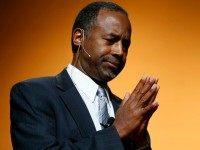
Carson Campaign Volunteer Dies
Braden Joplin, a campaign volunteer for presidential candidate Ben Carson, has died after a car crash in Iowa Tuesday.
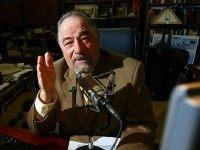
Michael Savage: Trump ‘Needed Palin Like a Hole in the Head’
Tuesday on his radio show, talk show host Michael Savage reacted to the news that former Gov. Sarah Palin (R-AK) would be endorsing Republican presidential front-runner Donald Trump at a rally in Ames, IA. Savage was not complimentary of Trump
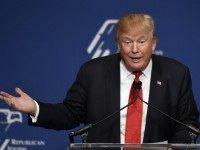
Trump: On Second Thought, Move U.S. Embassy to Jerusalem
Republican presidential frontrunner said Tuesday that he is “100%” in favor of moving the U.S. embassy from Tel Aviv to Jerusalem–a reversal from his position in December. Trump announced his new position on the simmering controversy in an exclusive interview
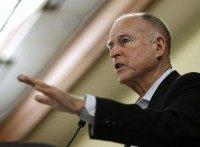
Jerry Brown: No, I’m Really Not Running for President
California Governor Jerry Brown reiterated Tuesday that despite Hillary Clinton’s collapse in the polls, and the new revelations in her ongoing e-mail scandal, he has no intention of entering the 2016 presidential campaign.
-
Team Rubio Launches ‘Millennials For Marco’
In an effort to highlight Sen. Marco Rubio’s generational appeal, the campaign has launched a new group of Millennials who are declaring their support for the Florida Senator.
Ted Cruz: Donald Trump ‘Supports Crony Capitalism’; Establishment Pick
In an interview with BuzzFeed, Ted Cruz says Donald Trump represents crony capitalism:
EXCLUSIVE–Juanita Broaddrick: NBC Removed Bombshell Charge That Hil...
Juanita Broaddrick says that an NBC staffer present for the 1999 filming rushed in front of the camera, interrupted the prerecorded session, and declared that the allegations against Hillary Clinton could not be included in the interview.
Long-Time Leaders of Conservative Movement Unite in Support of Ted ...
The old lions of the conservative moment—leaders with direct ties to the 1960 signing of the Sharon Statement by 90 members of Young Americans for Freedom (YAF) at William F. Buckley’s residence—are uniting around the presidential campaign of Sen. Ted Cruz with passionate endorsements of his candidacy.
Desperate: Team Clinton Attacks Sanders as ‘Socialist Wackadoodle’
As socialist Bernie Sanders surges to a tie in Iowa and a massive +27 point lead in New Hampshire, David Brock, founder of the left-wing propaganda site Media Matters, and a key Hillary Clinton ally, gave us a preview of
Donald Trump Rampages to +32 Point Lead in Florida
According to a just-released poll from Florida Atlantic University broadcast on MSNBC, in a 12 person Republican primary, Donald Trump is blowing the pack away in Florida with an incredible +32 point lead. The billionaire businessman currently enjoys 48% support
Rand Paul: Donald Trump Is a ‘Fake Conservative’
Rand Paul says Donald Trump is a “fake conservative,” though he won’t say the same about Trump’s newest backer Sarah Palin.
DNC Admits that Republicans Are the Party of Donald Trump
The Democratic National Committee (DNC) has conceded that the GOP is now the party of Donald Trump.
Hillary Clinton Super PAC’s Statement on Trump’s Palin Endorsement ...
The pro-Hillary Clinton super PAC Priorities USA officially responded to Sarah Palin’s endorsement of Donald Trump by releasing a graphic of a smiley face pointing and laughing.
Sarah Palin’s Fiery Iowa Endorsement of Donald Trump: Let’s Stop ‘P...
AMES, Iowa — 2016 GOP frontrunner billionaire Donald Trump won the coveted endorsement of former Alaska Gov. Sarah Palin—the 2008 GOP vice presidential nominee—here at Iowa State University on Tuesday.
Bernie Sanders Leads Hillary by 27 Points in New Hampshire
Insurgent Democratic candidate Sen. Bernie Sanders has opened up a 27-point lead over Hillary Clinton in the state of New Hampshire, which will hold the nation’s first primary contest on February 9.
George Will Hints at Going Third-Party if It’s Trump vs Hillary
On Tuesday’s broadcast of Hugh Hewitt’s radio show, Washington Post columnist George Will discussed the prospects of a contest between Republican presidential front-runner Donald Trump and Democratic presidential hopeful Hillary Clinton. Will speculated that a good number of Democrats would
Sanders: ‘Very Proud’ To Get Endorsement of MoveOn.org
Democratic presidential candidate Senator Bernie Sanders (I-VT) declared that he was “very proud to have received recently, the endorsement of MoveOn.org” on Tuesday’s “Rachel Maddow Show” on MSNBC. Sanders said, in response to a question on some of the endorsements
-
Just horrible: #Charsadda: 20 students dead; Army says it has retaken buildings, more bodies may be...
Ted Cruz is deploying his wife, Heidi Cruz, on the campaign trail and retweeted this new NBC piece on her from this morning. Watch: Consider this an open...
This is unbelievable. According to Fox News, a gun was found at the hideout where “El Chapo” Guzman was arrested that could take down a helicopter, and was...
Former Defense Secretary Robert Gates pretty much confirmed every fear of conservatives about Obama in this interview on “Morning Joe.” Watch below: Gates...
On Trump’s yuge night of securing Sarah Palin’s endorsement, Bill O’Reilly tried to ruin it by putting his feet to the fire on why he donated $100,000...
In one of the more bewildering moments of all political history, Sarah Palin just endorsed Donald Trump. Here’s the entire video of the affair, with the...
Mark Levin opened his show today on the topic of ethanol, pointing out via new audio that Donald Trump just said today in Iowa that he wants to drive up ethanol...
Trump was shocked that Cruz came out against ethanol subsidies because that’s the only way you can win Iowa: Trump again hits Cruz on ethanol, then says that he,...
Yes, it’s one state away from his home-state, but it’s still a very important primary, and Bernie being TWENTY FREAKING SEVEN POINTS above Hillary is sure to...
Michael Savage, who has endorsed Donald Trump, believes the Trump campaign just screwed up big time with the endorsement of Sarah Palin. Savage says that we are now...
It looks like the rumors we reported last night were true. .@NBCNews confirms @SarahPalinUSA will endorse @realDonaldTrump at a rally tonight in Iowa....
Oh Trump. Only he would boast this as a good thing two weeks before the first Republican primary state: Has Trump forgotten how angry people are with the GOP...
Things are just getting crazy. Late last night people started speculating that Sarah Palin might be endorsing el Trumpo today, and apparently a statement put out by the...
The idiot governor of Iowa has come out today saying he wants Ted Cruz defeated because he doesn’t support ethanol subsidies: DES MOINES REGISTER –...
Donald Trump is increasingly attacking Ted Cruz from an establishment perspective, just like he did in December when he called Cruz a maniac for taking on McConnell and...
Bristol Palin penned a letter slamming the Cruz campaign and Sarah Palin seems to have endorsed it by tweeted it out: Is THIS Why People Don’t like Cruz?...
The Supreme Court is announcing that it will indeed take up the issue of the constitutionality of Obama’s despotic executive orders on immigration that allowed...
Read more: http://therightscoop.com/#ixzz3xnWTpRtK
-
John McCain Not ´Taking Sides´
After Sarah Palin Backs TrumpNBC News, by Kelly O´Donnell Original Article Posted By: KarenJ1- 1/20/2016 8:25:50 AM Post Reply John McCain will sit this one out. The man who first gave Sarah Palin a starring national role in August 2008 will try to avoid getting involved in the Trump endorsement storyline — for now, at least. "Senator McCain has great respect and appreciation for Governor Palin," a senior aide told NBC News. "As he has said since Senator [Lindsey] Graham exited the race, he will not be taking sides and endorsing a primary candidate at this point in the race." McCain has been publicly supportive of Palin through all the attention and controversy in recent years but they keep some distance. Chelsea to Fundraise for Mom in
London With Anna WintourWeekly Standard, by Daniel Halper Original Article Posted By: Toledo- 1/20/2016 8:25:12 AM Post Reply Chelsea Clinton will be in London February 23 for a fundraiser for her mother, Hillary Clinton. The former (and perhaps future) first daughter will be joined by fashion icon Anna Wintour, the editor-in-chief of Vogue. The fundraiser will be at the home of Natalie Massenet, who is chair of the British Fashion Council. The cost to attend the event is $2,700, the maximum contribution allowed by an individual to a campaign under federal election law. An invitation of the vent was posted on Hillary Clinton´s campaign website: Palin: Are you ready to
make America great again?CNN, by MJ Lee Original Article Posted By: FlyRight- 1/20/2016 8:00:36 AM Post Reply Ames, Iowa Sarah Palin is back.Donald Trump isn´t one to share the spotlight, but on Tuesday night, he made an exception for the former Alaska governor and John McCain´s 2008 vice presidential running mate.Palin appeared alongside Trump at a raucous campaign rally, following days of speculation about the identity of a "special guest."In front of thousands of Trump fans, Palin handed Trump his most high-profile endorsement yet, just two weeks out from the Iowa caucuses. "Heads are spinnin´. Media heads are spinning! This is going to be so much fun!" Palin yelled from the stage. "Are you ready to make Cruz recounts family’s addiction struggles Washington Post, by Katie Zezima Original Article Posted By: Toledo- 1/20/2016 7:51:27 AM Post Reply FREEDOM, N.H. – Asked about a scourge of fatal opiate overdoses here in New Hampshire, Sen. Ted Cruz (R-Tex.) turned personal, recounting his family’s struggles with addiction. “Substance abuse is a terrible scourge,” Cruz said at a country store here. “I will note it is something I know firsthand.” Cruz was asked about heroin addiction twice Tuesday and once Monday. The Texas Republican speaks of his half-sister, Miriam, who struggled with addiction for years and died of an overdose of pills a few years ago. Her son found her dead in her bed, Cruz said. “She spent her entire life struggling with both drug Yes, Latinos Are Rising, but
So Are Latino NonvotersNew York Times, by Damien Cave Original Article Posted By: Emerson- 1/20/2016 7:44:57 AM Post Reply Here’s the reality of Latino political power today: It’s not what it could be. Even though 27 million Latinos will be eligible to cast a ballot in November — an increase of 17 percent since 2012 — the Latino population is becoming more distant from the American political process, according to a new report from the Pew Research Center. Most Latinos who could vote in the last three national elections chose not to. Turnout was just under 50 percent in 2008, and fell to 48 percent in 2012. It dropped to 27 percent in the 2014 midterms, the lowest rate ever recorded Kurdish Forces Are Waging
´Revenge´ Campaign in
Iraq: Amnesty InternationalNBC News, by Cassandra Vinograd Original Article Posted By: Lalo- 1/20/2016 7:03:06 AM Post Reply Western-backed Kurdish forces are deliberately destroying Arab villages in a revenge campaign that could amount to war crimes, according to a new Amnesty International report. The human-rights group said it had documented a "concerted campaign" by Kurdish forces to forcibly displace Arab communities "to punish them" for "perceived sympathies" to ISIS. "The forced displacement of civilians and the deliberate destruction of homes and property without military justification may amount to war crimes," Amnesty´s Donatella Rovera said in a statement. There was no immediate response to the report from the Kurdistan Regional Government. U.S.-backed Kurdish forces have been Amir Hekmati, American
Released From Iran: ´I Feel
Alive For the First Time´NBC News, by Elizabeth Chuck Original Article Posted By: Lalo- 1/20/2016 6:32:50 AM Post Reply One of the four American prisoners released from Iran over the weekend said Tuesday that having his freedom back is "like being born again." "I feel really lucky. I feel alive for the first time," said Marine veteran Amir Hekmati of Flint, Michigan. Hekmati was released Saturday in a complex prisoner exchange, along with Christian minister Saeed Abedini, Washington Post reporter Jason Rezaian, and another American, Nosratollah Khosravi-Roodsari. Hekmati´s comments mark the first time the public has heard from one of the freed captives. He spoke outside the U.S. Army´s US-UK press comment on
MPs´ Donald Trump debateBBC, by Staff Original Article Posted By: Lalo- 1/20/2016 6:25:46 AM Post Reply The debate by British MPs over whether US presidential hopeful Donald Trump should be allowed to enter the UK following his remarks about temporarily banning Muslims from entering the US has led to widespread press commentary on both sides of the Atlantic. "You want charisma? Excitement? Tension? Best look elsewhere," suggests an article in Politico. "If there´s one thing the rest of the world can´t get enough of, it´s British people explaining to them that they´re wrong. And no-one more so than American conservatives, who are only too eager to hear from the mother country about how they should be Man jailed after attempt to kill dog Cincinnati Enquirer, by Kate Murphy Original Article Posted By: DaddyO- 1/20/2016 6:15:11 AM Post Reply A Springfield man was jailed Tuesday after he tried to have an innocent dog killed in place of his "vicious" dog that was court ordered to be put down. "In my 10 years as a judge I can´t recall a more cold and heartless act," Hamilton County Municipal Court Judge Brad Greenberg said in court Tuesday. "If I could give you more time, legally, I would." Jason Dotson, 32, was sentenced to 30 days at the Hamilton County Justice Center without probation or work release. His bond was set at $50,000. Dotson´s "pit bull type dog" almost killed a medical Racial bean-counting is
making schools unsafeNew York Post, by Betsy McCaughey Original Article Posted By: Judy W.- 1/20/2016 5:55:13 AM Post Reply President Obama’s acting secretary of education, John King, hijacked Martin Luther King Jr. Day to accuse public schools of racism because black students are punished more often and more harshly than others. The Obama administration has been threatening school districts with lawsuits and federal-funding cuts wherever it finds “racial disparities” in who gets suspended or expelled. But racism isn’t to blame. Black students misbehave more often. Tragically, school administrators are so fearful of saying it that they’re being intimidated into ceding control of classrooms to violent, disruptive students. Ted Cruz´s New Hampshire
dream: Bury Marco RubioCNN, by Theodore Schleifer Original Article Posted By: Lalo- 1/20/2016 5:40:05 AM Post Reply Whitefield, New Hampshire - Ted Cruz almost certainly won´t win in New Hampshire. But a close consolation would be for Marco Rubio to fail as well. Cruz, perhaps the furthest right candidate in the Republican field who is also organizing evangelical voters in Iowa and the South, is trying to both set expectations for a medal stand finish in this a secular state populated with moderates and centrists. Moreover, New Hampshire could be a body blow to Rubio, the man once envisioned as his chief rival, should he finish below establishment competitors seen as lesser threats: John Kasich or Chris Christie. Those Obama’s gun orders
hit with first lawsuitThe Hill, by Tim Devaney Original Article Posted By: Lalo- 1/20/2016 5:17:11 AM Post Reply President Obama is facing the first court challenge over his executive action on guns. On the same day the Supreme Court agreed to hear a challenge to Obama’s action on immigration, the conservative advocacy group Freedom Watch announced it is filing a lawsuit against the controversial gun orders. Freedom Watch accuses Obama of circumventing Congress to “invent” new gun laws. "The president states that he is doing so purely because he does not like the legislative decisions of the Congress,” wrote Larry Klayman, the founder of Freedom Watch, who is also a National Rifle Association member. "These actions are unconstitutional abuses How Donald Trump
defeats Hillary ClintonPolitico, by Ben Schreckinger Original Article Posted By: Lalo- 1/20/2016 5:11:00 AM Post Reply If Donald Trump becomes the next president of the United States, there will be plenty of surprises along the way. One of the biggest will be the help he gets from black voters. According to Republican pollsters and Trump’s allies, the GOP poll-leader — who has been dogged by accusations of racism, most recently for tweeting out a chart that exaggerated the share of murders committed by blacks — is poised to out-perform with this demographic group in a general-election matchup with Hillary Clinton. “If he were the Republican nominee he would get the highest percentage of black votes
Staff has edited.
Scary questions in Ukraine
energy grid hackCNN, by Jose Pagliery Original Article Posted By: Pageturner- 1/20/2016 5:09:54 AM Post Reply American investigators are traveling to Ukraine to investigate a recent electricity blackout -- perhaps the first major act of cyberwar on a civilian population. Ukraine´s top law enforcement agency, the SBU, has publicly claimed this was a cyberattack by Russia, part of its ongoing war over the Crimean peninsula. If that´s true, this is a turning point for the use of computer hacking in warfare. It shows that military cyberattacks can be effective at physical disruption. But right now, little is certain. 1. Parts of Ukraine´s energy grid went down On December 23, a vast region of Ukraine experienced a power outage. Prykarpattya Oblenergo, Bob Gates on the GOP
field: ´They don´t know
what they´re talking about´Politico, by Nolan D. McCaskill Original Article Posted By: Lalo- 1/20/2016 5:07:05 AM Post Reply Former Defense Secretary Robert Gates on Tuesday blasted the Republican field for their rhetoric on destroying the Islamic State. “First of all they, they don’t know what they’re talking about,” Gates told MSNBC’s “Morning Joe." Front-runner Donald Trump has said as president he would “bomb the s---” out of the Islamic State, while rival Ted Cruz has suggested carpet bombing them into oblivion. “Carpet bombing would be completely useless. It’s totally contrary to the American way of war,” said Gates, who was appointed by former President George W. Bush and also served under President Barack Obama.
STAFF HAS EDITED. Please proof posts.Hillary’s Campaign Accuses Intel IG Of
Coordinating With GOP On Damning Email ReportsDaily Caller, by Chuck Ross Original Article Posted By: MissMolly- 1/20/2016 4:54:51 AM Post Reply Hillary Clinton’s top campaign spokesman believes a vast right-wing conspiracy of sorts is behind Tuesday’s explosive report about the discovery of emails on the former secretary of state’s server that are classified at levels higher than previously known. According to NBC’s Andrea Mitchell, Brian Fallon, Clinton’s communications director, believes that the Intelligence Community’s inspector general, I. Charles McCullough III, is “selectively” leaking information in coordination with Republicans.(Snip for tweet)Mitchell did not provide insight into whether the flack produced evidence to back up his hypothesis that Republicans are in cahoots with McCullough. The accusation is a throwback to Bill and Hillary Clinton’s Where have you gone, Sarah Palin? The woman
who just endorsed Donald Trump is not the
rogue conservative I knew in 2008New York Daily News, by S. E. Cupp Original Article Posted By: MissMolly- 1/20/2016 4:52:05 AM Post Reply Back in December, I was at a small event in a Las Vegas bar; CNN’s Jake Tapper was interviewing Sarah Palin. He asked which candidate she’d most like to grab a beer with. Her answer? Donald Trump. Trump, of course, has been sober his whole life. But the moment perfectly encapsulates the Palin-Trump romance. Because in addition to endorsing a beer run with a man who doesn’t drink, she also just endorsed for the presidency a man who is neither a committed conservative nor an anti-establishment rogue. Trump’s long history of liberalism is well known. He was once a registered Democrat
-
El Chapo Had a ‘Fast & Furious’ Rifle National Review, by Jim Geraghty Original Article Posted By: mc squared- 1/20/2016 10:01:26 AM Post Reply ‘El Chapo’ Drug Kingpin Had a Rifle From Federal ‘Fast & Furious’ Program The Fast and Furious gun-smuggling scandal is one of those stories that the government and the media declared over… that wasn’t, or isn’t, actually over. Here’s a nice example: A .50-caliber rifle found at Joaquin “El Chapo” Guzman’s hideout in Mexico was funneled through the gun-smuggling investigation known as Fast and Furious, sources confirmed Tuesday to Fox News. A .50-caliber is a massive rifle that can stop a car, or as it was intended, take down a helicopter. After the raid on Jan. 8 in the city Of Course Sarah Palin Is
Endorsing Donald TrumpNational Review, by Charles C.W. Cooke Original Article Posted By: zoidberg- 1/20/2016 9:59:03 AM Post Reply Where there are open flames, there will always be curious moths. Tonight, at a little after six o’clock, Sarah Palin will succumb at last to overwhelming temptation and sign up for Donald Trump’s ever-glistering light show. And in that remarkable moment, the mask will fall off completely. If you are surprised by this development, you shouldn’t be. Ours is an age in which politics and entertainment are melted together without opposition or disfavor; a silly, self-indulgent, shallow age in which Kanye West thinks he can be the president of the United States and the president of the United States thinks Hillary campaign’s response
to latest email revelations
reveals desperationAmerican Thinker, by Thomas Lifson Original Article Posted By: magnante- 1/20/2016 9:57:23 AM Post Reply It is hard to overstate the significance of the latest revelations about the national security catastrophe caused by Hillary Clinton’s private email server. The nation’s highest-level secrets were kept on an unsecure server that is believed to be have been hacked by multiple overseas parties. These revelations come from the nation’s Intelligence Community Inspector General Charles McCullough III (snip) .@brianefallon says Clinton emails werent classified when sent or received accuses Intel IG of working w/ GOP to leak selectively. So the IG is part of a vast right wing conspiracy! And inverting logic, the ultra-secret contents weren’t classified because they weren’t R-G6-LC What Palin does for Trump, and to Cruz Washington Examiner, by Byron York Original Article Posted By: Toledo- 1/20/2016 9:26:50 AM Post Reply AMES, Iowa -- In September, when Donald Trump appeared before a giant rally in Dallas, a person in the Trump circle described the coming months of the campaign. Sure, a big event like Dallas got headlines, but Trump knew he couldn´t do the same rally, rally, rally for the next several months and expect the public to remain interested. Even then, TrumpWorld was planning a varied (and secret) schedule of special events, bold policy rollouts, and other attention-getting gestures to keep the voters´ and the media´s attention over the course of a long campaign. Tuesday night in Ames was a prime Hillary Clinton Email Said
to Include Material
Exceeding ‘Top Secret’New York Times, by Mark Mazzetti Original Article Posted By: jackson- 1/20/2016 9:22:41 AM Post Reply WASHINGTON — Intelligence officials reviewing emails on former Secretary of State Hillary Clinton’s private computer server have found information they consider to be of a higher level of classification than “top secret,” according to a letter sent to lawmakers last week by the intelligence agencies’ inspector general. The letter, dated last Thursday, says that some of the information in Mrs. Clinton’s emails has been determined to be “top secret/SAP.” That designation is usually given to information about “special access programs” — often intelligence-gathering programs and other secret programs run by the Pentagon and the C.I.A. — that are among the California to investigate whether Exxon
Mobil lied about climate-change risksLos Angeles Times, by Ivan Penn Original Article Posted By: Honeybadger- 1/20/2016 9:06:38 AM Post Reply California Atty. Gen. Kamala D. Harris is investigating whether Exxon Mobil Corp. repeatedly lied to the public and its shareholders about the risk to its business from climate change — and whether such actions could amount to securities fraud and violations of environmental laws. Harris´ office is reviewing what Exxon Mobil knew about global warming and what the company told investors, a person close to the investigation said. The move follows published reports, based on internal company documents, suggesting that during the 1980s and 1990s the company, then known as Exxon, used climate research as part of its planning and other business The End of Saudi Arabia? American Thinker, by Mike Konrad Original Article Posted By: magnante- 1/20/2016 8:57:58 AM Post Reply A more detestable regime than Saudi Arabia could not be found. Arguably the most repressive regime on earth. An absolute monarchy. A Wahhabist theocratic nightmare that arms ISIS. (snip) In five years, the KSA´s foreign reserves are expected to be emptied out. Already, the KSA is dropping internal subsidies on electricity and domestic gasoline. The local people are upset. Upset Muslims means violent revolution. For over forty years, this blight of a tribe has caused recessions, caused depressions, and damaged the planet´s economy. They got wealthy by re-impoverishing an emerging Third World, starting with the artificially created 1973 oil crisis. They R-TA-Wide_2 Why one Oregon college is planning
a ‘Whiteness History Month’Washington Post, by Sarah Larimer Original Article Posted By: Emerson- 1/20/2016 8:46:53 AM Post Reply You might already have seen headlines about “Whiteness History Month,” an upcoming event at Portland Community College in Oregon. The event caused a little buzz online recently. It’s scheduled for April, though, and the organizers of “Whiteness History Month: Context, Consequences, and Change” are still taking presentation proposals, so that attention caught school officials a bit off-guard, said Kate Chester, PCC spokeswoman. “We really don’t know what set this off yesterday,” Chester told The Washington Post on Tuesday. Regardless, the story made the rounds online, and so this week, Chester found herself discussing the proposed project, which is expected to focus on exploring You need to know: The wild stuff they´re
saying way out there on the leftInvestor´s Business Daily, by Andrew Malcolm Original Article Posted By: SurferLad- 1/20/2016 8:28:38 AM Post Reply Much of the country and by far the largest TV audiences have been consumed with the contest for which Republican will inhabit the White House starting one year from today. You wouldn´t know it by the hidden debates the Democratic National Committee has scheduled to help Hillary Clinton get its nomination. And that is, of course, the point. But there´s a contest on the left side of the country´s political spectrum, too, albeit a tiny one. It involves an ex-Gov. Martin O´Malley and a 74-year-old socialist senator Bernie Sanders, who talks as if WE´RE ALL HARD OF HEARING. Barring an
© 2025 Created by WTPUSA.
Powered by
![]()

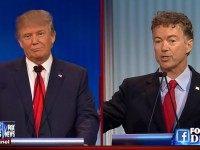
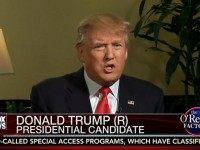
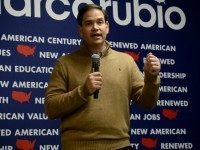
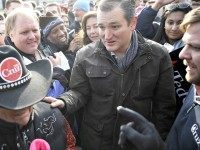
![[NBC CLINTON BROADDRICK] Headline: BROADDRICK Caption: Juanita Broaddrick tries to hold back tears during her January 1999 interview on 'Dateline NBC,' in which she discusses her claim of a 1978 sexual assault by Bill Clinton. The inteview aired Wednesday, Feb. 24, 1999, less than a week after the Arkansas woman's claim hit the newsstands. (AP Photo/Dateline NBC) Title: TEL Credit: AP Country: USA Date: 19990224 ObjectName: NBC CLINTON BROADDRICK CaptionWriter: SAB ADJ Special: TV OUT; IMAGE FROM TELEVISION Category: A Source: DATELINE NBC Keyword: NBCCLINJ.JPG](http://media.breitbart.com/media/2016/01/juanita-broaddrick-nbc-200x150.jpg)
